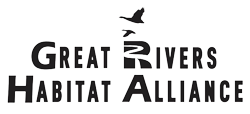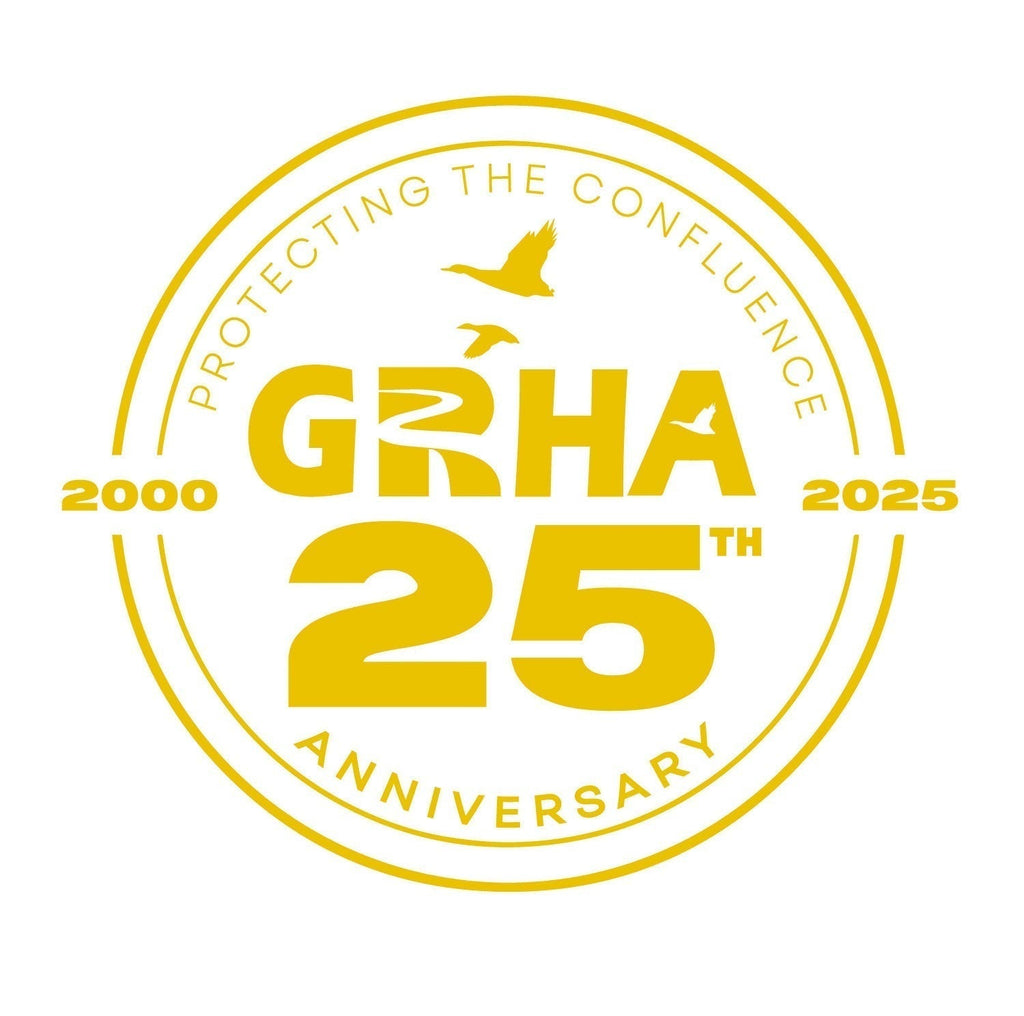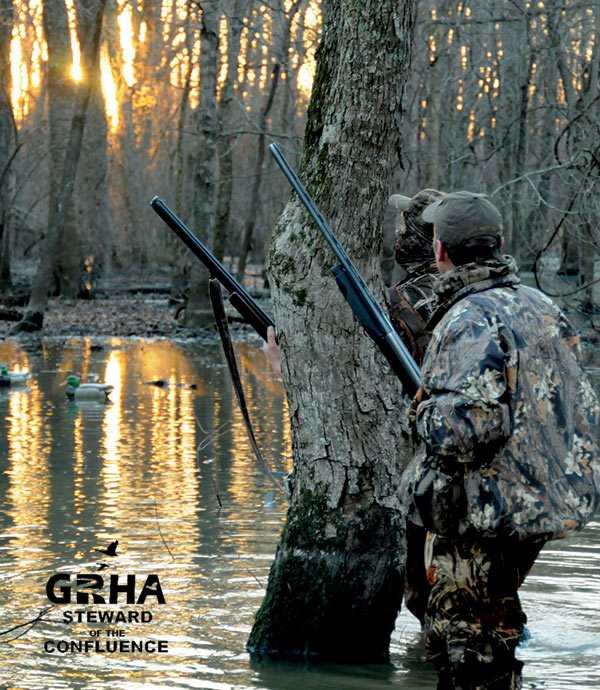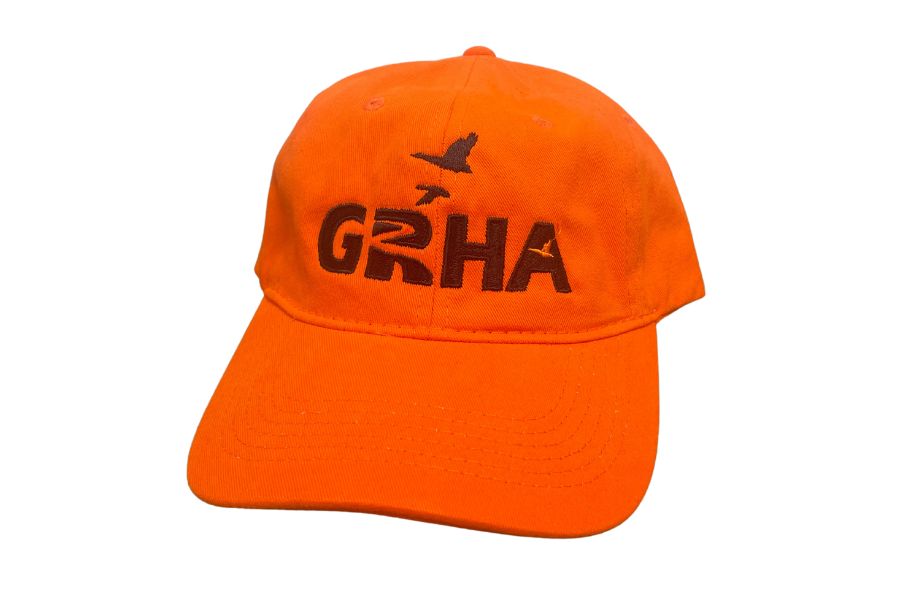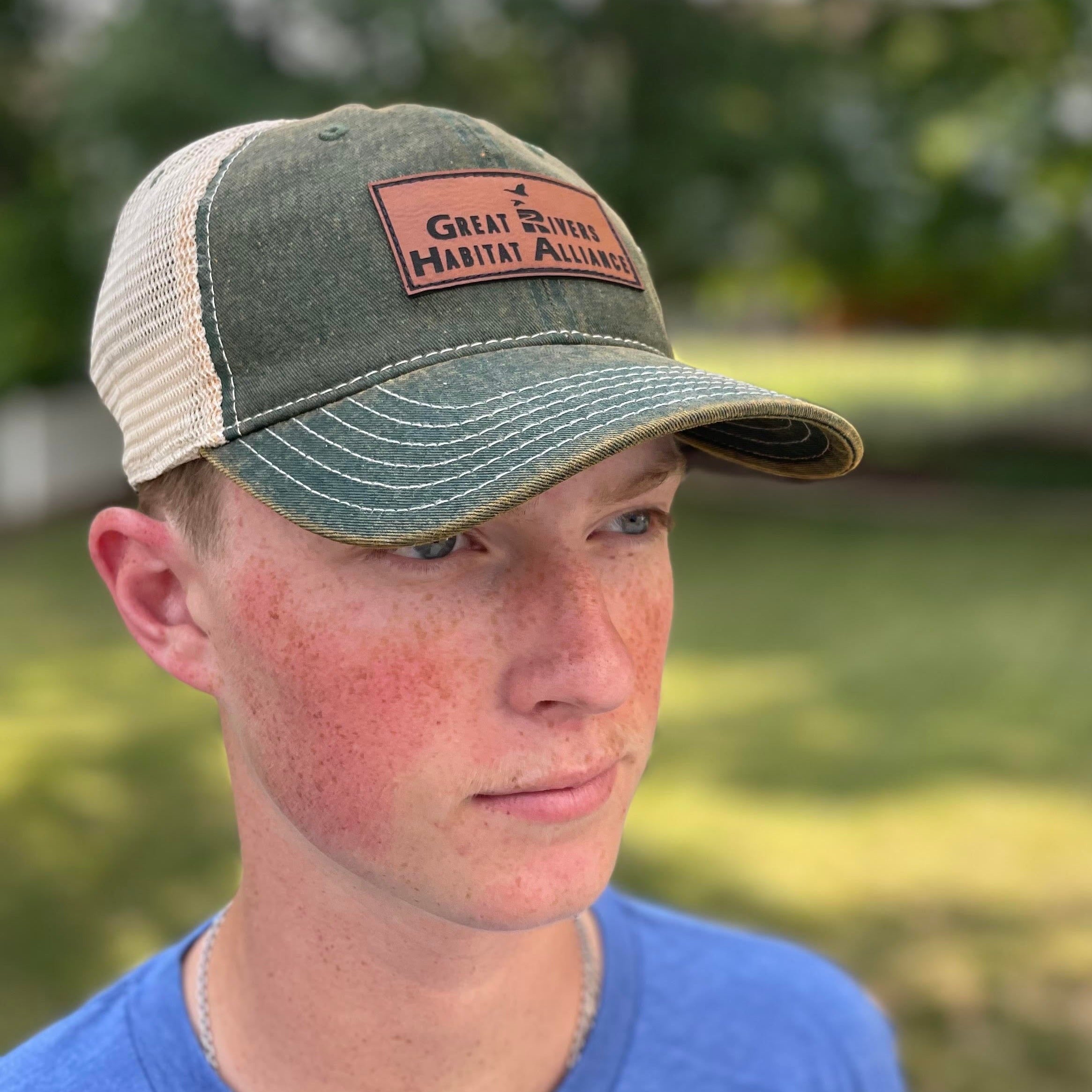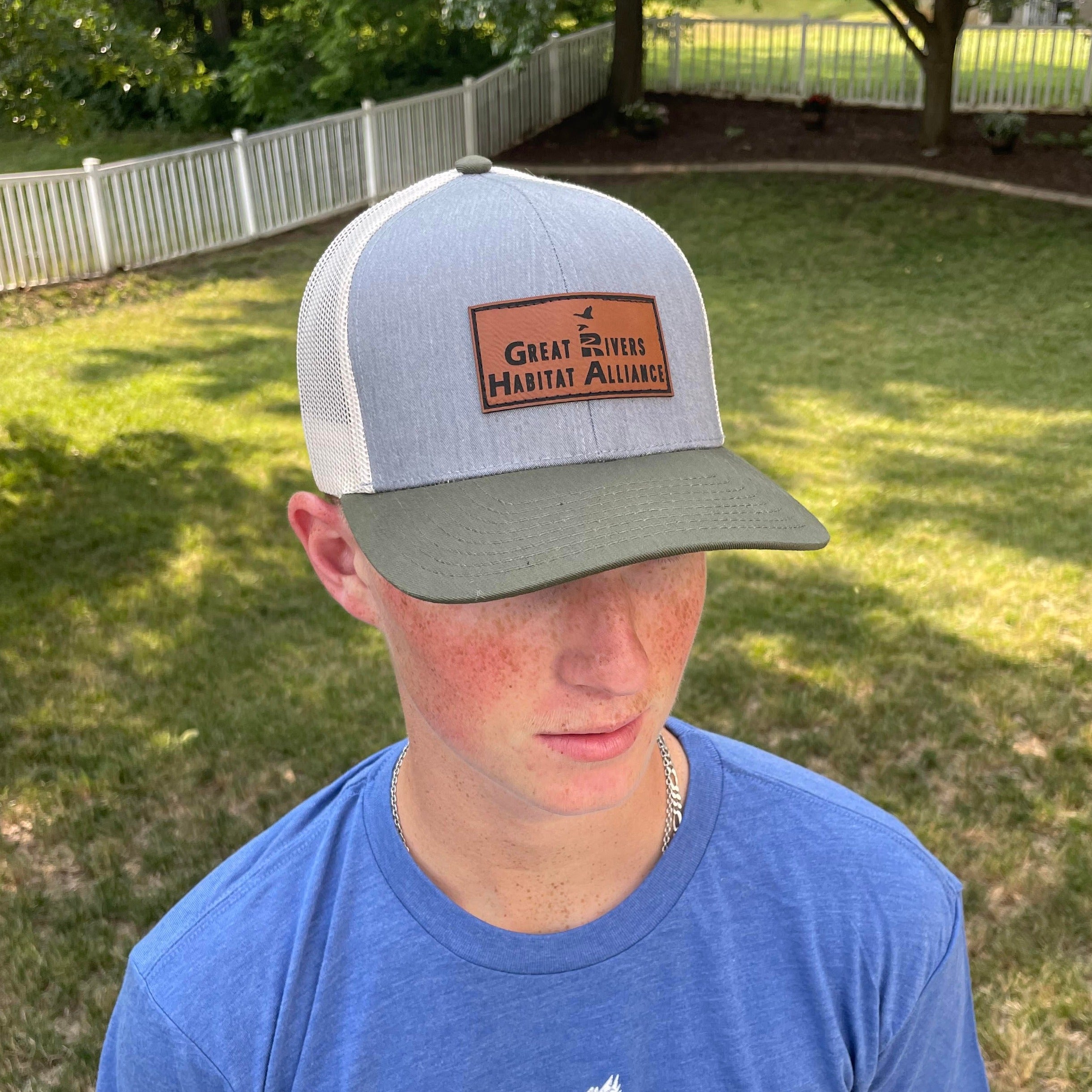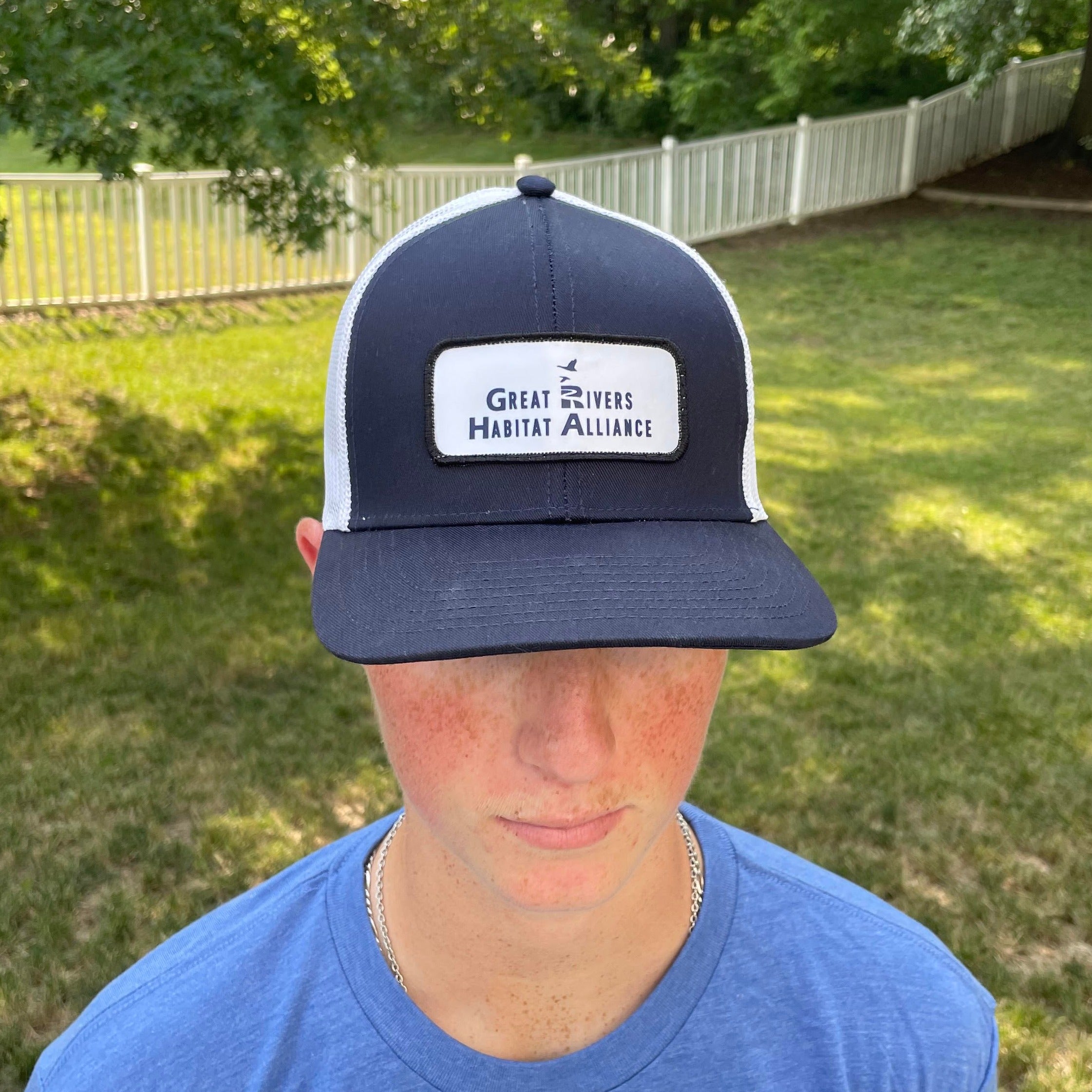
25 Years, 25 Gifts: GRHA’s Conservation Legacy


As the Great Rivers Habitat Alliance (GRHA) celebrates its 25th anniversary, it proudly reflects on twenty-five gifts it has given to the Confluence floodplain. These gifts represent decades of dedication to partnerships, habitat conservation, policy advocacy, education, and community engagement.
Conservation Milestones
1. Habitat Protection: GRHA has permanently protected 968.7 acres in fee title and influenced another 65,000 acres of critical wetland habitat through various partnerships.
2. Foster-Rollins Floodplain Conservation and Education Area: GRHA launched this initiative to protect and restore 181 acres of floodplain habitat along the Mississippi River in partnership with the Mysun Charitable Foundation, Robert J. Trulaske Family Foundation, The Conservation Fund, and the Land Learning Foundation. This area serves as a conservation site and an educational resource for the community.
3. 400 acre Waterfowl Refuge: The Jay and Carolyn Henges Wetlands Education and Conservation Center: In partnership with the Missouri Department of Conservation (MDC), Henges Charitable Trust, and The Nature Conservancy, GRHA secured 785 acres of prime wetland habitat in St. Charles County (formerly Whistling Wings Duck Club) from Ducks Unlimited. The original 330-acre inviolate refuge has been expanded to 400 acres and will be there for migratory birds forever.
4. Johnny Belz Project at Clarence Cannon National Wildlife Refuge Project: In 2022, GRHA collaborated with Ducks Unlimited and the U.S. Fish and Wildlife Service to enhance 1,531 acres of wetland habitat at the Clarence Cannon National Wildlife Refuge. The project improved water management and restored natural drainage patterns, benefiting waterfowl and other wildlife.
5. Bong Project in Wisconsin: Protecting 106.3 acres in the Mississippi floodplain, marking GRHA’s first out-of-state project. With the assistance of GRHA, a partnership group led by Ducks Unlimited (DU) was able to close on this threatened property adjacent to the Richard Bong State Recreation Area within the Mississippi Watershed. This is GRHA’s first out of state project.
6. Missouri Big Rivers Initiative: GRHA partnered with Ducks Unlimited to address wetland loss and flooding in the Confluence region. This initiative has helped restore and protect floodplain wetlands, benefiting over 250 species of migratory birds.
7. Conservation Easement Due Diligence Assistance program: GRHA champions the Conservation Easement Program held by Ducks Unlimited (DU) promoting and assisting landowners in participation of the Easement Program, including 11 of the 35 DU easements being held by GRHA Board Members. In 2022, GRHA created the new GRHA Conservation Easement Due Diligence Assistance program to assist Confluence landowners and increase uptake of the DU Conservation Easements, closing first easement in 2023, a 75-acre easement strategically located to stop any future expansion west of Smart Field.
8. Confluence Conservation Partnership: GRHA is a founding member of an alliance that has protected more than 34,000 acres of riverine habitat and influenced another 31,000 aces in technical assistance as well as 12,100 acres protected in perpetuity by Ducks Unlimited Easements.
9. DU/GRHA Partnership Gala: For 10 years GRHA has partnered with Ducks Unlimited in raising more than $1.7 million for conservation in the Confluence and Big Rivers Initiative.
Smart Policy Successes: Since its founding, GRHA has actively opposed commercial development projects that threaten the floodplain and advocated for smart policy. The organization has testified at public hearings and raised awareness about the importance of flood storage, clean water, and agricultural preservation.
10. Missouri House Bill 1434 (2016): Strengthening county governments’ role in floodplain development the passage of this bill gives county governments greater say over the use of TIF within St. Louis, St. Charles, and Jefferson counties. History has shown that counties have governed more responsibly, overall, than municipalities when it comes to floodplain development.
11. Missouri Senate Bill 225 (2007): Preventing TIF usage in rural 100-year floodplains. Passage of this law prohibits the use of tax incremental financing (TIF) in the 100-year floodplains within rural areas across the state and ensures the right to discharge firearms, preserving a vital component in preserving hunting heritage in the floodplain.
12. Eminent Domain Challenge: Successfully opposed St. Charles City’s attempt to take over Whistling Wings Duck Club. Successfully opposed the city of St. Charles from executing eminent domain on the Whistling Wings Duck Club. Maintaining the protection of the current Conservation Easement and saving all parties thousands of dollars and time in court.
13. Elm Point Levee Project: Blocked a proposed levee intended for commercial development, which could have worsened flooding. In 2020 GRHA was successful at stopping the Elm Point Levee Project. The proposed Elm Point levee within the Mississippi River watershed is a typical “build it and they will come” floodplain development project intended to take undeveloped land out of the floodplain (as defined by FEMA) via a new 500-year levee to allow for major commercial development after the levee is built. This levee race costs enormous amounts of money, harms the environment, damages vital habitat, and threatens public safety by creating larger and faster floods.
14. Stopping Smart Field Expansion: Prevented the expansion of Smartt Field into the Mississippi Flyway. Smartt Field was set for expansion through a federal grant that would have allowed light jets to land in the heart of the Mississippi Flyway, which contains two-thirds of our nation’s migratory waterfowl.
15. CRG Cumulus LLC Data Processing Center moratorium – in 2025 GRHA along with conservation partners like the Missouri Department of Conservation, duck clubs and thousands of local residents worked together to stopped the proposed data processing center proposed to bring 15-foot of fill to more than 220 acres, negatively impact jurisdiction wetlands and the well field protection district. GRHA continues to be the watchdog for the Confluence.
Education & Public Awareness
16. Wetlands Habitat Management Workshops: Training landowners in conservation techniques. GRHA holds an annual workshop, training landowners and land managers how to improve their land management practices to benefit migrating waterfowl and other wildlife.
17. Jay and Carolyn Henges Wetlands Education and Conservation Center: GRHA’s new headquarters and a hub for land management, education, scientific research, and wetlands conservation. This property will be used for conservation, education, and public engagement, ensuring long-term protection for migratory birds.
18. Educational Conferences: In 2018 and 2019, GRHA sponsored the River Soundings conference in Forest Park. The all-day conference on floodplain and water policy was attended by more than 100 people at each conference and supported by our friends at Missouri-American Water and Maritz
19. Duck Club Map – In 2017 Great Rivers Habitat Alliance committed to take over the production of the Confluence Duck Club Map from the Hager Family and expanded the Map to include Lincoln and Pike Counties. The 2027 editions are currently in development and design.
20. Duckfest Partnership: In 2022, GRHA signed an agreement to partner with Duckfest, helping raise awareness of the Confluence’s importance while celebrating hunting heritage. This non-for-profit event raises money for conservation in the Confluence and local charities.
21. Annual Fundraising Events: GRHA now holds 5-9 fundraising events annually supporting conservation efforts while fostering a sense of community.
22. Clean Up Efforts- GRHA held a major park clean-up effort in 2018 in conjunction with the Open Space Council of St. Louis. More than 55 volunteers removed more than 200 tires and 16,000 lbs. of scrap metal debris from the Robert Winter Park along the Meramec River.
23. Public use – GRHA has entered into partnerships with the Missouri Department of Conservation and the Missouri Hunting Heritage Federation to provide public hunting opportunity for doves and waterfowl through mentored hunt opportunities for youth, veterans, first responders, women, and first-time hunters (R3).
24. Education – GRHA partners with the Missouri Department of Conservation, the Land Learning Foundation, and others to provide wildlife viewing and educational opportunities on its properties. GRHA continues to look for partnerships with other nonprofit groups and school districts to provide educational opportunities.
25. “The Legacy Fund” for Future Generations - GRHA has launched a named fund dedicated to supporting youth education and future land acquisitions. It symbolizes GRHA’s commitment not just to the past and present—but to a resilient future.
Looking to the Future
GRHA’s dedication to conservation is stronger than ever. With ongoing programs like its Conservation Easement Due Diligence Assistance Program and continued policy advocacy, the alliance remains a powerful force for floodplain protection.
The success of the past 25 years is only the beginning. As GRHA moves forward, it continues to build partnerships, educate the public, and safeguard one of North America’s most important ecological landscapes. We remain committed to wetland conservation, wildlife protection, and environmental education.
Want to join the movement? Learn more and get involved at GRHA’s official website.

